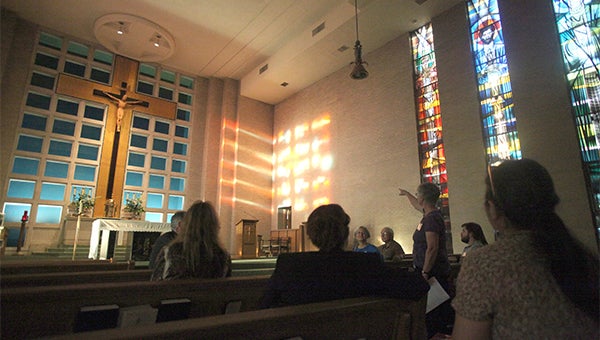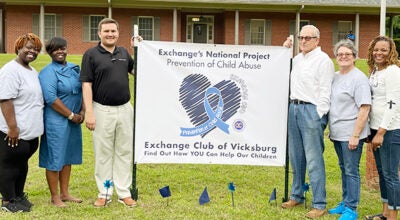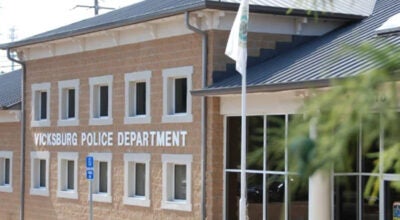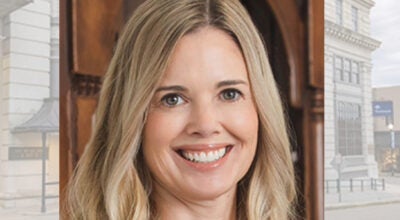Improving Relations
Published 7:35 pm Friday, September 16, 2016

- RELIGIOUS INSTRUCTION: Members of the Catholic Church’s Rite of Christian Initiation for Adults met at St. Paul Catholic Church Thursday to continue their religious instruction.
A small group of people gathered in the vestibule of St. Paul Catholic Church Thursday to improve their relationship with God.
The Catholic Church’s Rite of Christian Initiation for Adults is a seven-month program of religious instruction to prepare adults for participation as members in the Church, culminating on Holy Saturday, when they receive the sacraments of baptism, confirmation and the Eucharist as part of their welcome and initiation into the church community.
It’s a journey of five stages, where they learn about prayer, scriptures, the Catholic Church’s sacraments, dogma and traditions, while at the same time examining themselves and their faith while learning to become part of a religious community that dates back centuries.
“It’s a conversational process; it’s not just a talk,” said St. Paul Pastor Tom Lalor.
“We try to make it (the journey) one where it leads us into periods of discussion and question, not just straight talk or information, because it is that journey and community access, rather than a lecture and a talk,” said RCIA team member Anna Booth. “Then it becomes a class, and we don’t want it to be that.”
“It’s a process that can begin at any time, but it usually begins for us around August and September,” Lalor said.
The stages of instruction called the catechumenate begin with the period of inquiry, a six-week period where people receive religious instruction and determine if they wish to contribute instruction.
“It’s an introduction, and we begin with the pre-catechumen book, which begins with a journey and a call, and discerning during that period of time if they want to continue into full communication with the church,” Booth said.
The majority of people attending the inquiry continue their instruction, she said, moving on to a period of formation, where they learn about the church doctrine, practices and dogma.
Booth said RCIA team members who teach the classes include some items from the period of formation during the inquiry, “Because if they (students) haven’t heard any of this, how would they know to continue?”
“It gives them a better understanding before they make that decision, and it is a decision every step along they way, and we have rites in the church during the mass that move them along each step,” she said.
The period of enlightenment is conducted during Lent, and is the preparation for receiving the sacraments on Holy Saturday, or the Easter Vigil.
“Lent was part of the original RCIA back in the fourth century,” Lalor said. “It was a 40-day period of preparation for baptism, confirmation and Eucharist.
“The whole meaning of Holy Saturday has been revived. In the old days, certain ceremonies, Holy Thursday, Good Friday and Holy Saturday were observed, but not looked upon as preparation for the sacraments of baptism, confirmation and Eucharist. The meaning of the Easter Vigil has been brought back to where it was in the early church.”
The period of enlightenment leads to the celebration of the sacraments of initiation, where they receive baptism, confirmation and the Eucharist.
The final stage is the Mystagogia, a four-week period where the new Catholics deepen their sacramental life by attending mass.
Lalor said the RCIA program differs from the Catholic instruction he remembered as a young priest, where the people received instruction from the parish priest, “This is by far better,” he said.
Booth said it creates a feeling of community: “Just that bond of the group that is coming with the team and the sponsors. They really develop that sense of community action and the community aspect that is so critical to them continuing on.”
And the interaction with the students affects on the teachers.
“We even as the team, we’re continuing our journey with Christ and deepening our relationship,” Booth said. “The role of the catechist is not just to be teachers but really listeners and companions on that journey. We may know a little bit more in the way of the church’s teaching, but as far as spiritualty, we may be equal.”
“There are times I would be giving the lesson and I ask myself in preparation, ‘Where am I in my faith life as far as what I’m going to say tonight?’” Lalor said. “Where am I in terms of my journey of my own conversion?”
People seek RCIA instruction in various ways, Booth said.
Most often, they call the church office about joining the church.
Sometimes, they are the spouse of a Catholic and had been attending mass with them, or they were influenced by a friend or an acquaintance who is Catholic.
Some are Catholics who left the church and decided to return, and take RCIA as part of their return to the faith.
“We would never go to somebody and say you need to be Catholic,” Lalor said. “We are never going to pull anybody out of their own faith tradition, because today, there is a huge ecumenical practice in Catholic Church. I know a lot ministers in town and we have a lot of young people (from different faiths) at school (St. Aloysius) and they have a wonder faith and the teachers as well.”
“If someone is searching and going to a different church, they will reach out to someone who is Catholic, and they will tell them to call the church office,” Booth said.
Anna McCain said she and her husband Matthew, two of the students, visited several churches, including St. Paul, began investigating the Catholic Church around Thanksgiving, and Matthew attended Catholic school when he was growing up in Greenville.
“We visited the church and waited for an opportunity,” she said. “I think St. Paul is the place for us.”
Max Polk, who grew up Baptist, attended mass with his wife Linda at St. Paul and wanted to learn more.
Mackenzie Coulter attended St. Aloysius, and had been considering joining St. Paul.
Coulter who is in the legal profession, said she was also influenced by the compassion of the Catholics she worked with.
“It’s amazing the people we see,” Booth said, adding there are many stories how people decided to become Catholics or were former Catholics who decided to return to their faith.
And there’s a special feeling when classes reach the high point of their journey.
“To see them go through the process and receive the sacraments, that’s joy, tremendous joy.” Booth said. “When a family member joins the family it’s a happy time and filled with joy and peace. It’s overwhelming. It’s such a beautiful experience.”






